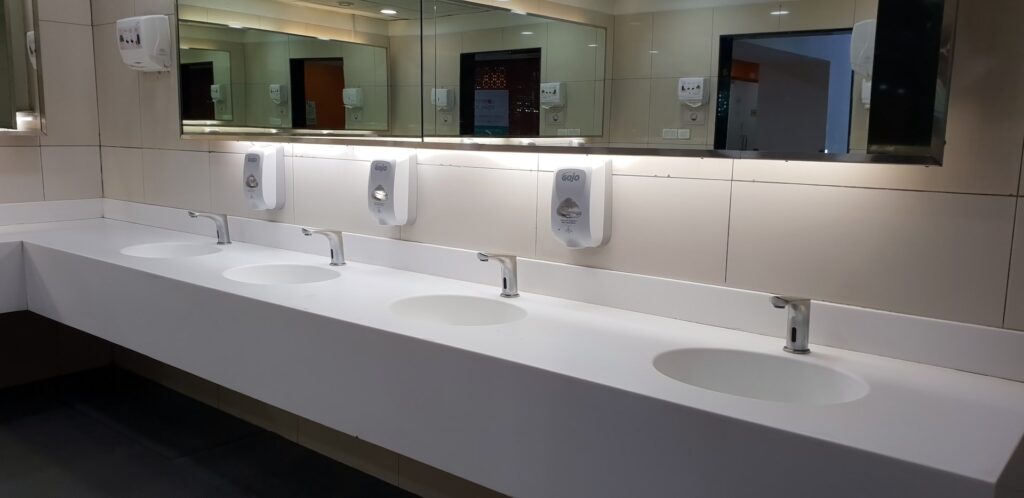
Photo by Syed Hussaini on Unsplash
Long-haul truck drivers live their lives on the road. They sleep in cabs. They shower at truck stops. And yeah, they need to use the restroom like every other human being.
Instead of allowing truck drivers to exist with dignity, many shippers/receivers or other locations such as ports denied drivers access to restroom facilities.
A truck driver could be delivering freight and stuck at a location while the trailer is unloaded, and still some cruel facility managers would not allow the drivers to use the premises.
Fortunately, new legislation was introduced into the United States House of Representatives that, if passed, would declare “No more!” to this practice.
The Trucker Bathroom Access Act
The new bill, called the Trucker Bathroom Access Act, would force “a shipper, receiver, manufacturer, warehouse, distribution center or any other business entity that is receiving or sending goods by commercial motor vehicle” to allow access to restrooms at these locations while drivers are working.
The bill is a bi-partisan effort, introduced by Representative Troy Nehls (R-Texas) and Chrissy Houlahan (D-Penn). The bill has been lobbied for by the Owner-Operator Independent Drivers Asssociation (OOIDA) and the Women in Trucking Association (WIT).
The bill is especially important for women drivers to have a safe place to use a bathroom, particularly at a time when more women are joining the career.
The representatives commented on the importance of showing gratitude to truck drivers for their work during the pandemic and the importance of truck drivers in maintaining thesupply chain.
Rail facilities and “any structure such as a filling station, service station or restaurant of 800 square feet or less that has a restroom located within such structure that is only intended for use by employees” are not required to allow access to truck drivers. But the bill should cover the major points of shipper/receivers and ports.
The bill still needs to be voted on and passed by both the House of Representatives and the Senate, and then signed by the President, before becoming law.
